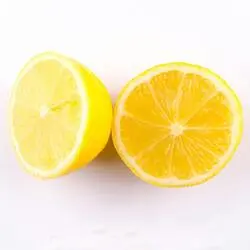
Level 1:
Stocks are something people can buy. When someone buys stocks, they own a small part of a company. People who buy stocks hope the company will do well. If the company does well, the value of the stocks goes up. Bonds are like loans. People who buy bonds lend money to companies or governments. The companies and governments pay back the money with interest. Dividends are a way companies share their profits with people who own stocks. Sometimes companies give money to shareholders as dividends. Commodities are things like gold or oil that people can buy or sell. Futures are contracts to buy a thing in the future. Options are contracts to buy or sell something at a set price.
Level 2:
Options trading might seem mysterious and complex, but it’s actually quite straightforward. An option is a contract that gives the buyer the right, but not the obligation, to buy or sell an underlying asset at a specific price within a certain time frame. For instance, if you see a bike you can’t afford, you could pay the owner a small fee for the option to buy it at a set price within a month. If the bike’s price goes up, you’ll still be able to buy it at the lower price. If the price falls, you can walk away from the deal.
Options trading is open to everyone, not just big investors. There are risks involved, but with research, a solid plan, and practice, options trading can supplement your income and grow your portfolio. Don’t be intimidated by finance; anyone can learn and succeed with the right mindset.
Full Story:
Hey there, fellow finance enthusiasts! Are you ready to learn about the mysterious world of options trading? Well then, buckle up because we’re about to dive into it!
First off, let’s get one thing straight. Options are NOT just for the big boys on Wall Street. Anyone can get started with options trading, and it’s actually a lot simpler than you might think.
So, what exactly is an option?
Well, in simple terms, an option is a contract that gives the buyer the right, but not the obligation, to buy or sell an underlying asset (like stocks, commodities, or currencies) at a specific price within a certain time frame.
Now, I know that may sound a bit confusing, but trust me, it’s not as complicated as it seems. Think of it like this: Let’s say you see a really cool bike at the store, but you don’t have enough money to buy it right now. You could make a deal with the store owner where you pay them a small fee (the option premium) for the right to buy the bike within the next month at a set price. If the price of the bike goes up during that month, you’ll still be able to buy it at the lower price you agreed upon.
But if the price goes down and you decide you no longer want the bike, you can simply walk away from the deal.
That’s basically how options work in a nutshell. Of course, there are different types of options, such as call options and put options, and various strategies you can use, but we’ll save those for another day.
One thing to keep in mind with options trading is that there is always risk involved. Just like with any investment, you could potentially lose money. That being said, if you do your research, understand the risks, and develop a solid trading plan, options trading can be a great way to supplement your income and grow your portfolio.
So, there you have it, folks. A brief introduction to how options work. If you’re interested in learning more, I suggest doing some further research and maybe even trying out a practice account before jumping in with real money.
Remember, the world of finance doesn’t have to be intimidating or exclusive. Anyone can learn and succeed with the right mindset and approach. So get out there, do your thing, and happy trading!
Questions:
What are stocks and how do they work?
How is investing in bonds different from investing in stocks?
What are dividends and why do companies pay them to shareholders?
Do you think commodities are a good investment? Why or why not?
In your opinion, which is better: futures or options trading? Why?
Fill in the Blanks:
stocks, Options, Bonds, options, Dividends, Futures, commodities, Stocks, dividends, bonds, Commodities
Title: “How Do ________ Work?”
Hey there, fellow finance enthusiasts!
Are you ready to learn about the mysterious world of ________ trading?
Well, in simple terms, an option is a contract that gives the buyer the right, but not the obligation, to buy or sell an underlying asset (like ________, ________, or currencies) at a specific price within a certain time frame.
________ are something people can buy.
________ are like loans.
People who buy ________ lend money to companies or governments.
________ are a way companies share their profits with people who own stocks.
Sometimes companies give money to shareholders as ________.
________ are things like gold or oil that people can buy or sell.
________ are contracts to buy a thing in the future.
Vocabulary:
Stocks - Shares of ownership in a company that represent a proportional claim on its assets and earnings.
Bonds - A type of debt instrument that represents a loan made by an investor to a borrower, typically a corporation or government entity.
Dividends - A payment made by a corporation to its shareholders, usually in the form of cash or additional shares of stock, as a portion of the company’s profits.
Commodities - Raw materials or primary agricultural products that are bought and sold, such as gold, silver, oil, wheat, or coffee.
Futures - Contracts that obligate the buyer to purchase an underlying asset at a predetermined price and date in the future.
Options - Contracts that give the holder the right, but not the obligation, to buy or sell an underlying asset at a set price on or before a certain date.




